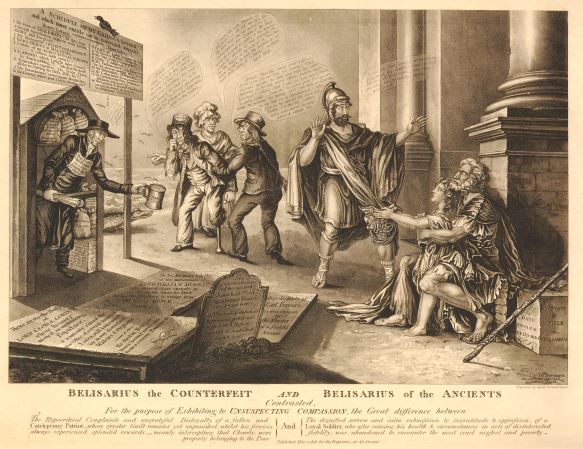Liberty Matters
Ancient Democracy and Education

In her response essay, Charlotte C. Thomas wonders “if the Founders’ criticisms of democracy were already known and addressed by the Athenians.” My answer to this question, as I have attempted to show, is a resounding yes. Classical Greek authors are often diffident towards democracy, due to its tendency to degenerate into unmanageable forms of government.
Plato, in particular, warns in his Republic against the unbridled race towards -as Evrigenis put it- “freedom by a multitude of insufficiently educated individuals” who place their private interests above the common good. Plato’s suspicion of democracy stems, in large part, from his observation that education in a democratic society often fails to restrain single individuals’ impulses or instill the intellectual and moral discipline necessary for wise governance.
Is there no solution in sight? Are democracies, in ancient Greek political thought, inherently destined to implode or collapse? Isocrates, a contemporary of Plato, offers an interesting perspective on the issue. The solution, for Isocrates, is to foster a shared system of civic and political education that can cultivate excellence while transmitting the core values of democratic equality to the newer generations.
According to Isocrates, the health of a state depends on raising individuals who can think critically, articulate their ideas persuasively, and prioritize the welfare of the community over narrow personal interests. His approach to education, rooted in rhetoric and philosophy, seeks to strike a balance between fostering individual virtue and nurturing a collective sense of responsibility. In his Panegyricus, for example, he writes:
Whether men have been liberally educated from their earliest years is not to be determined by their courage or their wealth or such advantages, but is made manifest most of all by their speech, and that this has proved itself to be the surest sign of culture in every one of us, and that those who are skilled in speech are not only men of power in their own cities but are also held in honor in other states.[1]
Isocrates’ emphasis on shared educational principles goes so far as to form the basis of what it means to be Greek. In his view, the outstanding talent for the arts and the sciences displayed by Athens allows the city to become the ‘teacher’ of Greece as a whole (Panegyricus 39-40), with the result that Athens’ educational guidance becomes the common patrimony of Greek-speaking society at large. Thus, the Greek identity itself comes to indicate a form of education (παίδευσις) rather than a genetic kin group.
Despite their differences, both Isocrates and Plato converge on the idea that education is crucial to the health and sustainability of a constitution. For Isocrates, this means fostering a shared civic culture through rhetorical training that aligned individual ambition with the common good. For Plato, it entails cultivating an intellectual and moral elite capable of guiding society through wisdom. These complementary perspectives reveal an enduring tension in ancient Greek thought on democracy: how to reconcile the demands of individual freedom with the requirements of collective governance.
The framers of the US constitution, well-versed in ancient philosophy, drew heavily on classical ideas when crafting a system designed to balance liberty with stability. In their view, preserving freedom requires equality before the law to be coupled with strong, widespread education and with a shared sense of morality so that a republican system doesn’t give way to tyranny or mob rule.
Endnotes
[1] Isocrates, Panegyricus 49: καὶ τούς τε σοφοὺς καὶ τοὺς ἀμαθεῖς δοκοῦντας εἶναι ταύτῃ πλεῖστον ἀλλήλων διαφέροντας, ἔτι δὲ τοὺς εὐθὺς ἐξ ἀρχῆς ἐλευθέρως τεθραμμένους ἐκ μὲν ἀνδρίας καὶ πλούτου καὶ τῶν τοιούτων ἀγαθῶν οὐ γιγνωσκομένους, ἐκ δὲ τῶν λεγομένων μάλιστα καταφανεῖς γιγνομένους, καὶ τοῦτο σύμβολον τῆς παιδεύσεως ἡμῶν ἑκάστου πιστότατον ἀποδεδειγμένον, καὶ τοὺς λόγῳ καλῶς χρωμένους οὐ μόνον ἐν ταῖς αὑτῶν δυναμένους, ἀλλὰ καὶ παρὰ τοῖς ἄλλοις ἐντίμους ὄντας (tr. Norlin 1928).
Copyright and Fair Use Statement
“Liberty Matters” is the copyright of Liberty Fund, Inc. This material is put on line to further the educational goals of Liberty Fund, Inc. These essays and responses may be quoted and otherwise used under “fair use” provisions for educational and academic purposes. To reprint these essays in course booklets requires the prior permission of Liberty Fund, Inc. Please contact oll@libertyfund.org if you have any questions.